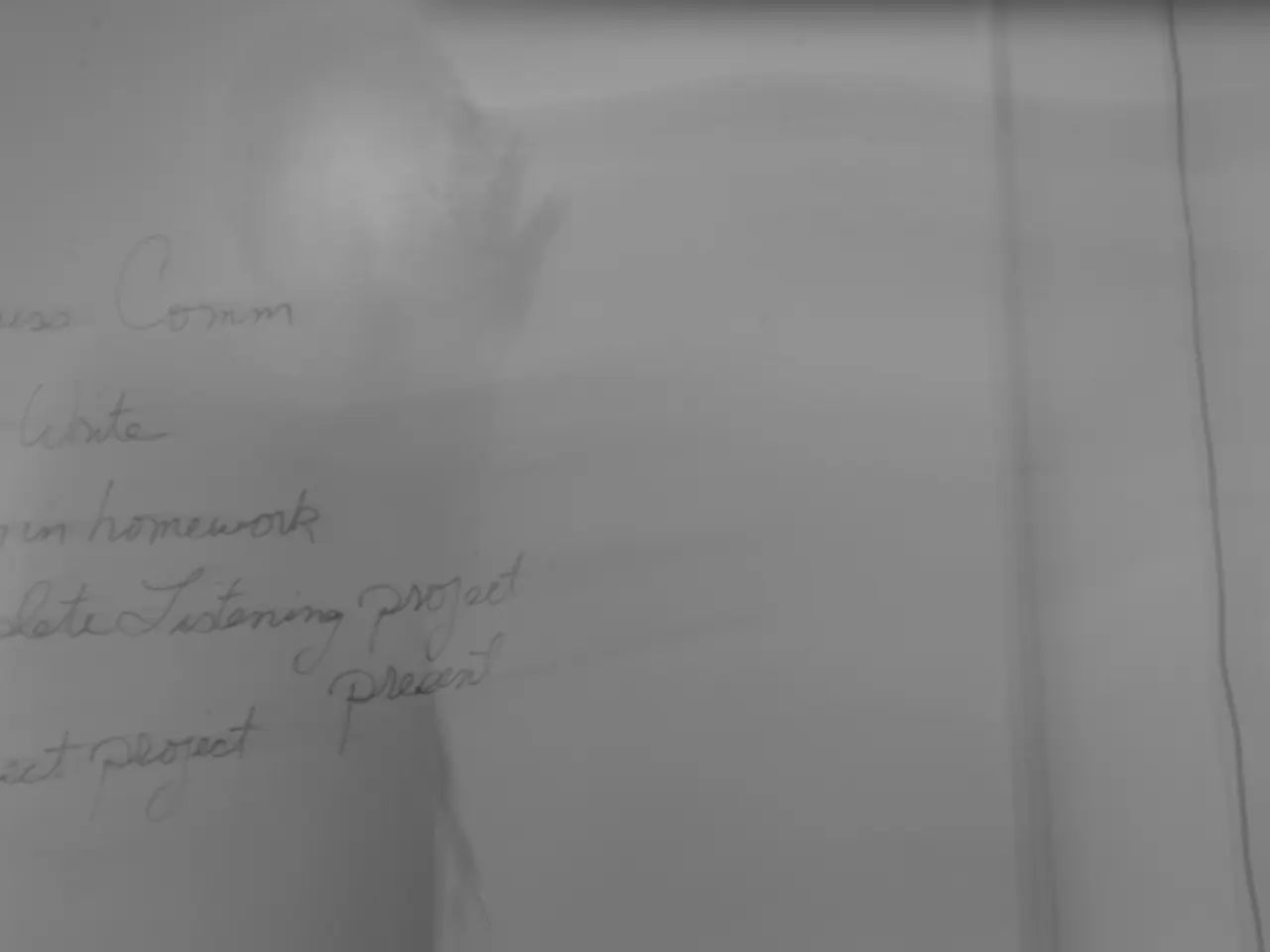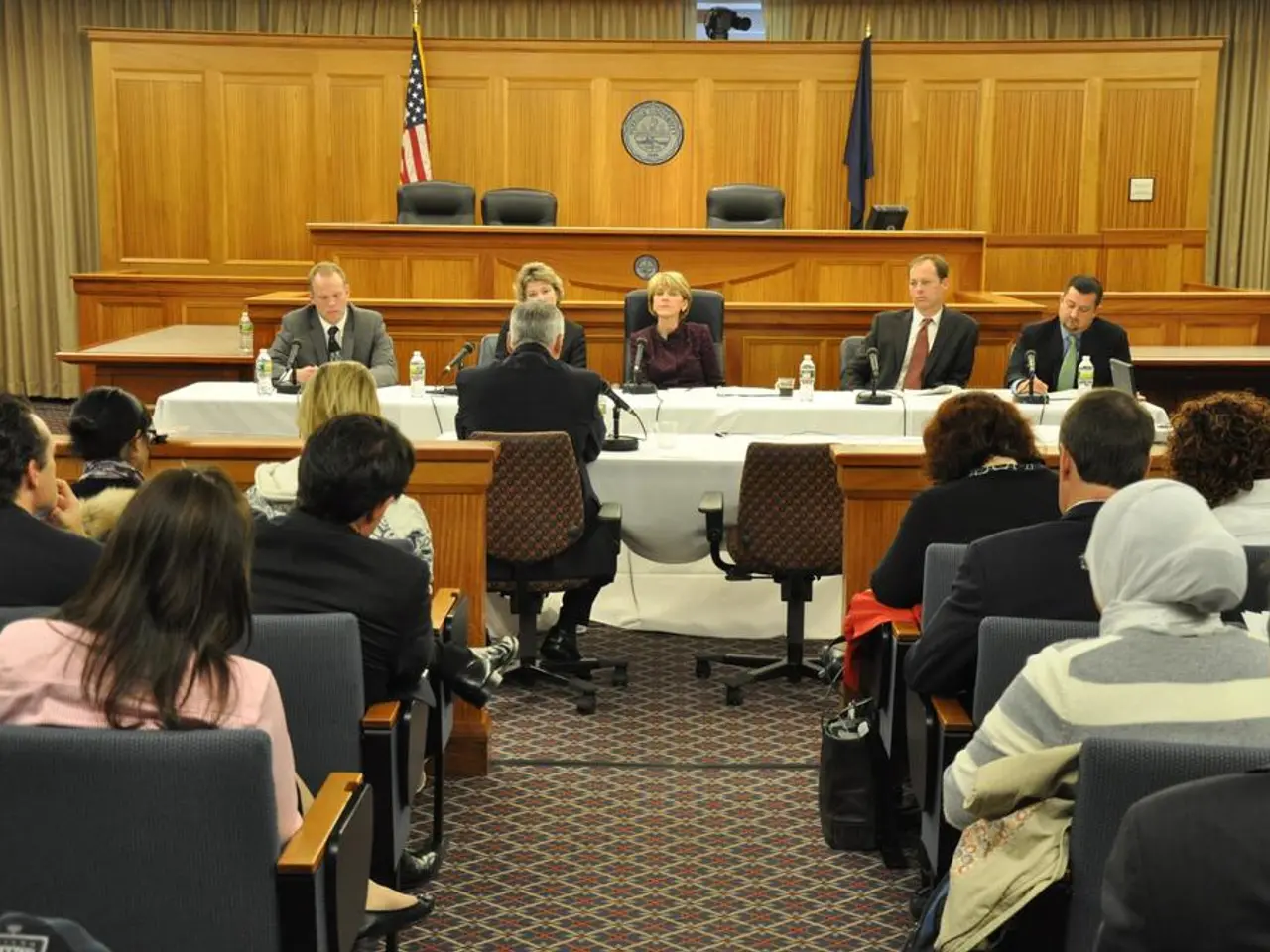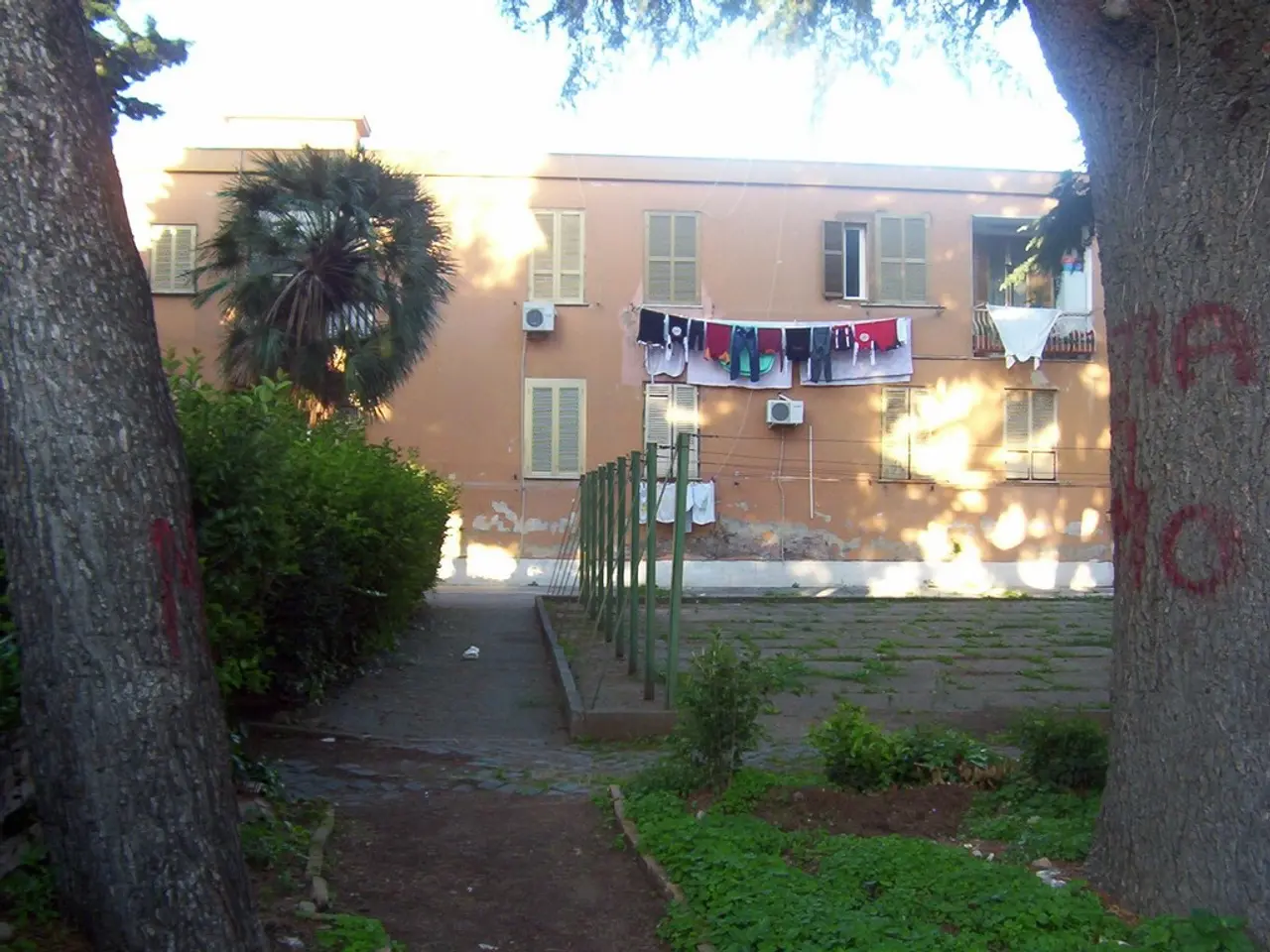Israeli Military Gains Operational Control of Rafah Crossing between Gaza and Egypt
Israel takes control over operational affairs at Rafah border passage in Gaza
In a surprising turn of events, the Israeli military announced that they have gained operational control of the Palestinian side of the Rafah crossing, the only point of exit and entry between Gaza and Egypt.
The military conducted an overnight operation on Tuesday, capturing the crossing in southern Gaza. The 84th Givati Brigade disconnected the vital Salah al-Din road in eastern Rafah from the crossing with Egypt during the operation.
Israeli forces reported killing 20 Hamas fighters and discovering three tunnel shafts during the operation. The Israeli flag was raised on flag poles at the crossing, while the Palestinian flag was taken down.
Gaza's General Authority for Crossings and Borders confirmed that passenger entry and aid deliveries into Rafah have been halted.
The Rafah crossing, often referred to as "Gaza's only window to the world," is a vital lifeline for Palestinians. Since Hamas took control of Gaza in 2007, the crossing has been under joint control by Egypt and Hamas. However, the current military operation has left the future of the crossing uncertain.
Israeli authorities also closed the Karem Abu Salem (Kerem Shalom) crossing, which they control, for security reasons. They promise to reopen it once the security situation permits.
The escalating conflict in the region has led to a catastrophic humanitarian crisis. The United Nations agency for Palestinian refugees, Unrwa, has warned that the continued interruption of aid and fuel supplies at the Rafah crossing will worsen the situation in Gaza. Over one million displaced Palestinians are currently sheltering in Rafah, many in makeshift homes and tents.
Recently, Israel ordered around 250,000 Palestinians to leave Rafah, triggering widespread panic and concern. Over the past 24 hours, at least 54 people have been killed in Israeli attacks on Gaza, bringing the total number of casualties to 34,789 since the war began on 7 October. Around 78,200 Palestinians have been wounded during this period.
Sign up for Jerusalem Dispatch and Turkey Unpacked newsletters
Stay updated on the latest insights and analysis on Israel-Palestine and Turkey by subscribing to our newsletters.
Some Background
The Rafah crossing has a complicated and contested history. Prior to the 2023 conflict escalation, Rafah was the main gateway for Gazans to exit to Egypt, especially when crossings controlled by Israel were closed or restricted. However, control of the crossing and its operations have been a long-standing point of contention.
After Israel disengaged from Gaza in 2005, the Rafah crossing was supposed to be controlled by Palestinian Authority authorities with European Union monitoring, but Hamas's takeover of Gaza complicated this arrangement. Since then, Israel has controlled border crossings into Gaza on the Israeli side, imposing varying degrees of blockade and restrictions, while Egypt's control has been conditional, frequently closing or restricting Rafah citing security concerns in Sinai.
This historical context, coupled with the current military operation, paints a grim picture for the future of the Rafah crossing and the people of Gaza. The international community must urgently address this humanitarian crisis and ensure free access for aid and refugees.
- The escalating situation in the Middle East has raised concerns about the future of the Rafah crossing, the only point of exit and entry between Gaza and Egypt, which is now under Israeli military control.
- The Israeli military's takeover of the Palestinian side of the Rafah crossing has left the crossing uncertain, causing anxiety for Palestinians, who heavily rely on it as a vital lifeline.
- The United Nations agency for Palestinian refugees (Unrwa) has warned that the continued interruption of aid and fuel supplies due to the operation at the Rafah crossing will worsen the situation in Gaza, where over one million displaced Palestinians are taking shelter.
- Ahead of the Israeli military's takeover, around 250,000 Palestinians were ordered to leave Rafah, resulting in widespread panic and concern.
- The media has been flooded with news about the conflict, politics, and security issues in the region, with a particular focus on war-and-conflicts, general-news, and crime-and-justice.
- As the situation unfolds, international politics are increasingly centered around the Gaza crisis, with discussions centering on securing free access for aid and refugees, ensuring peace within Israel, Palestine, and neighboring countries like Egypt.







